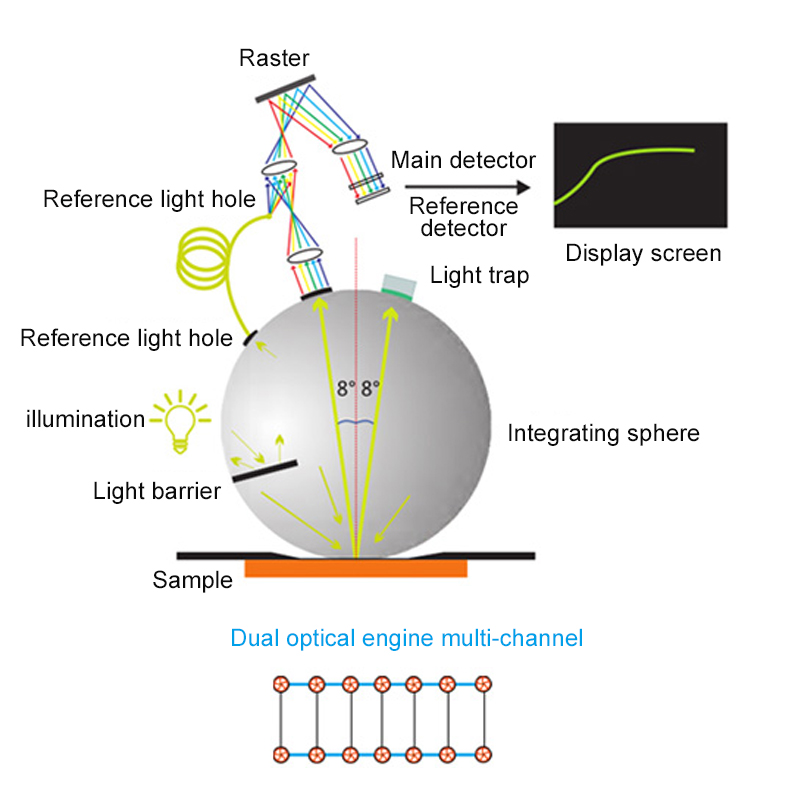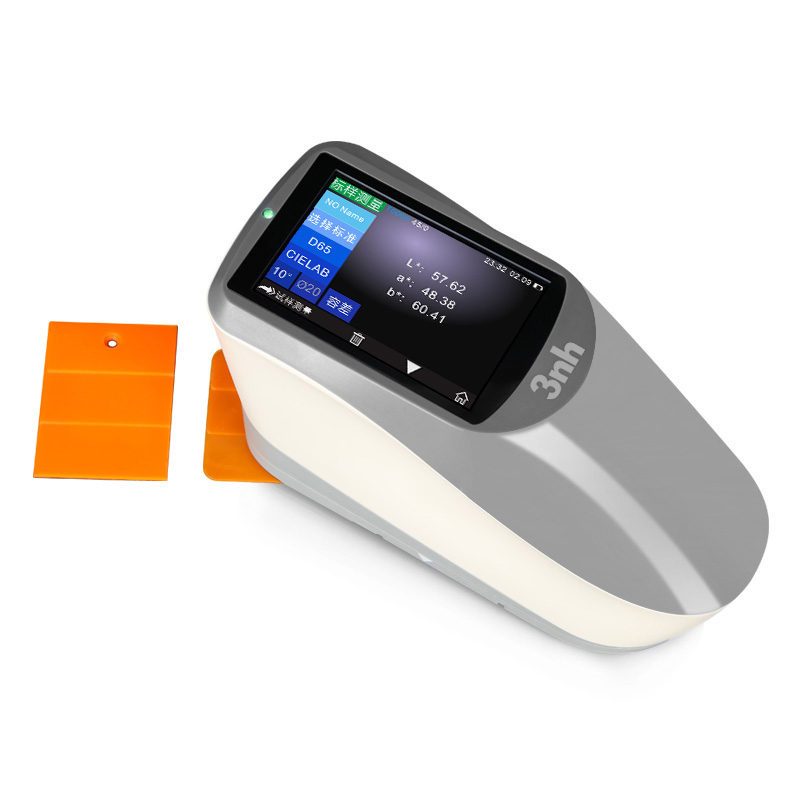The structure and principle of single beam spectrophotometer
Structure of a single beam spectrophotometer
The design of a single-beam spectrophotometer is relatively simple, usually with only one sample cell and a photoelectric converter . The light from the light source passes directly through the sample, and the signal is captured by the spectrophotometer and detector.
Working Principle of Single Beam Spectrophotometer
During the measurement process, the reference object and the sample are placed in the light path for measurement in turn, and the color characteristics of the sample are obtained by comparing the spectral differences between the two.
Since there is only one optical path, the stability of the light source and sensor is required to be high and they are easily affected by environmental factors.
The structure and principle of double-beam spectrophotometer
Structure of a double-beam spectrophotometer
The design of the double-beam spectrophotometer adds a reference light path. The light source is divided into two beams, one beam passes through the sample and the other beam passes through the reference route to the detector. The reference light path is used for real-time comparison to help correct the influence of environmental factors. The double-beam instrument performs better in accuracy and stability, and is suitable for high-demand color measurement, such as color monitoring in precision industry.

Working Principle of Dual-Beam Spectrophotometer
The dual optical path design can effectively compensate for the influence of light source fluctuation, electronic noise and other factors on the measurement results by measuring the reference light and sample light at the same time.
The two optical paths are independent of each other, which can eliminate some common mode noise and improve the stability and accuracy of the measurement.
Single-beam or dual-beam colorimeter?
If your main need is fast detection, your budget is limited, and accuracy requirements are not high, you can choose a single-beam spectrophotometer.

If you have high requirements for measurement accuracy and stability, especially in scenarios where long-term or multiple measurements are required, it is recommended to choose a dual-beam spectrophotometer. It is more stable in high-precision detection and is suitable for professional applications such as quality control and laboratories.
.jpg)








 0086 18165740359
0086 18165740359 Skype Online
Skype Online